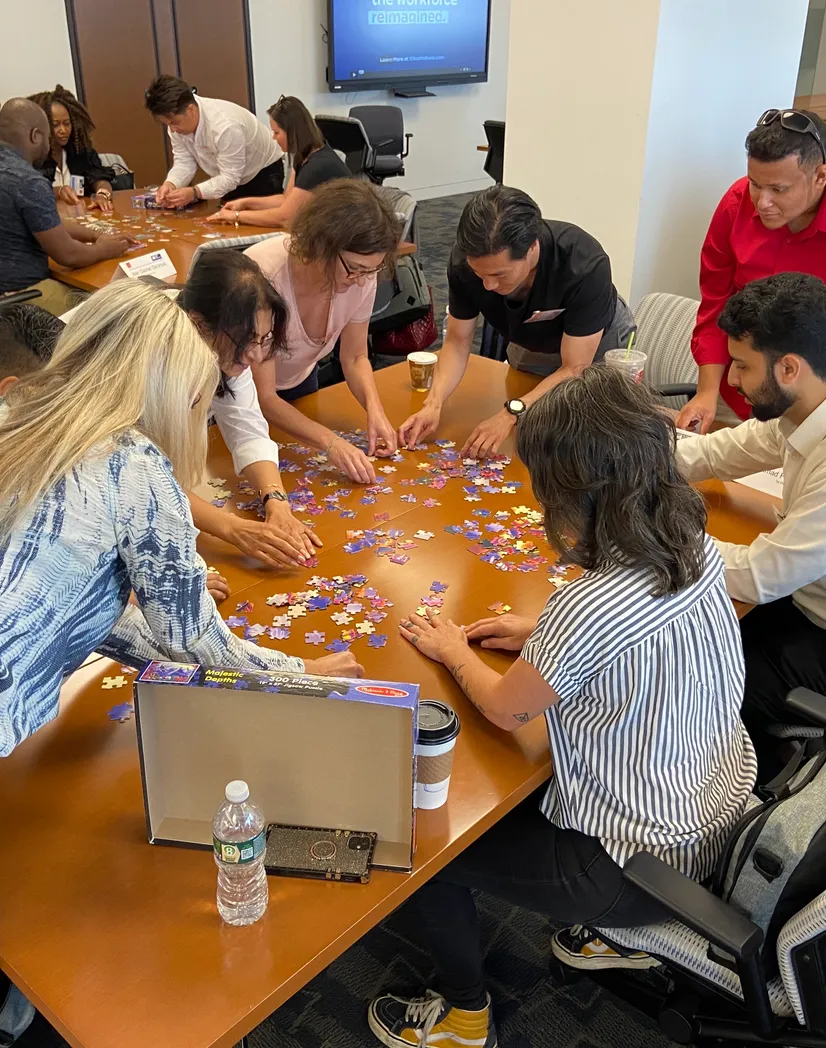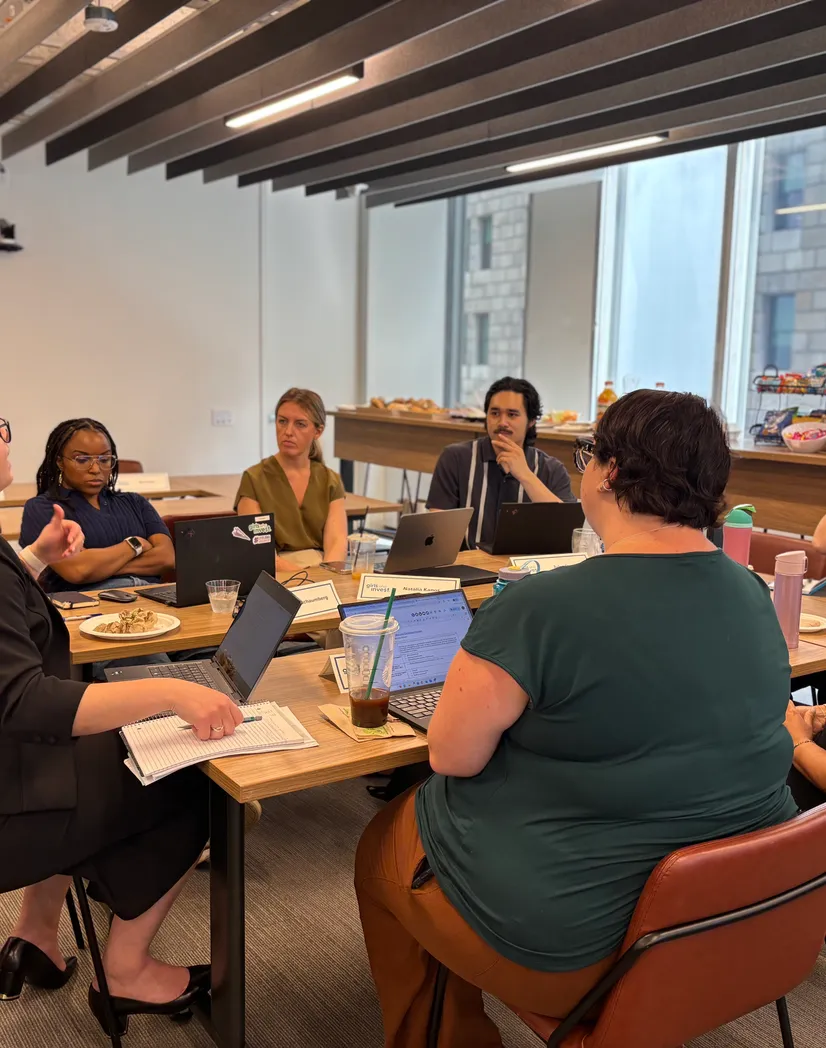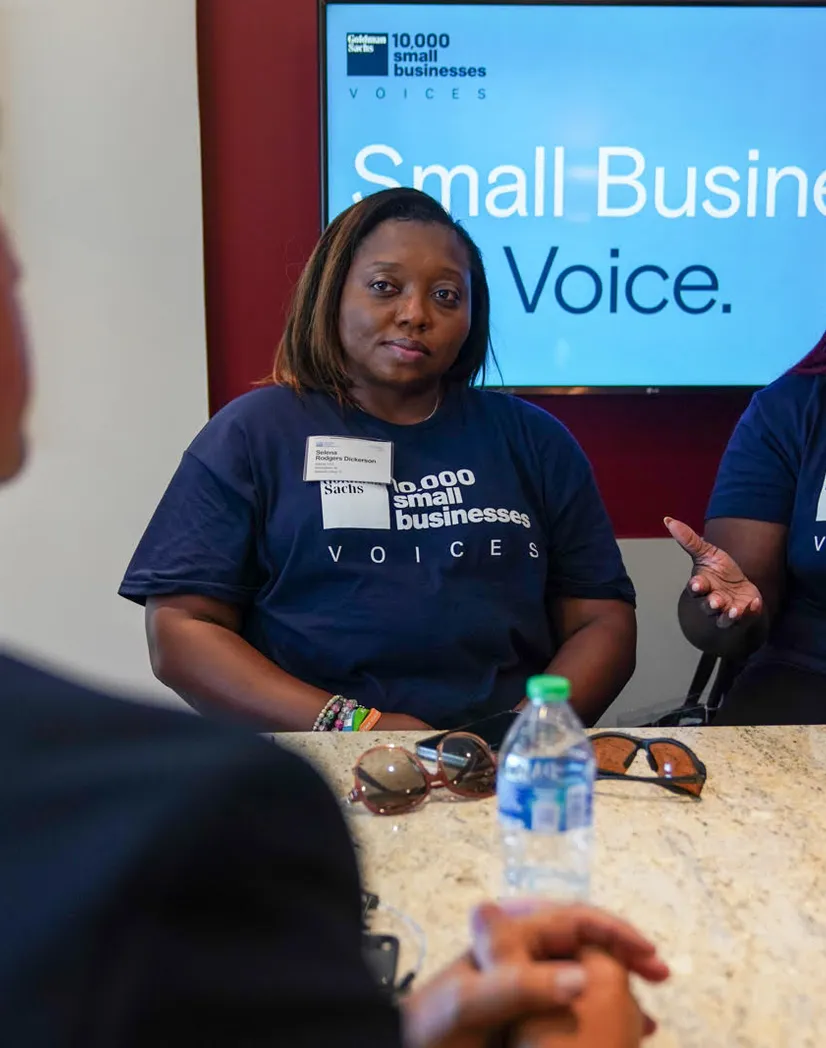
From Frustration to Policy Victory
A healthcare company came to Starling with a systemic problem: despite having proven, scalable solutions that could transform lives, they were shut out of public funding opportunities from USAID and others. The organization was existing in a dysfunctional system where 60% of funding went to just 25 large contractors and 43% of projects delivered only half their intended results, yet USAID still paid 97% of contract values. This frustration was widespread, but no one had challenged the system. We served as the strategic partner to transform individual complaints into collective action that drove real policy change.
- 36
Coalition organizations
- $500k
Funding secured
- 22+
Congressional meetings
Innovation Squeezed Out by Broken Systems
Innovative organizations using technology to scale global impact faced systematic exclusion from USAID funding. While 60% of USAID funding flowed to just 25 large contractors, these incumbents often used smaller innovators as window dressing—bringing them onto proposals to win awards, then cutting them from actual project implementation.
Meanwhile, a broken accountability system rewarded poor performance: 43% of projects delivered only half their intended results, yet USAID still paid 97% of contract values. Individual organizations complained privately but had no collective voice, while incumbent contractors deployed sophisticated lobbying operations to defend the profitable status quo.
Our research revealed the scope of this dysfunction: 73% of innovative organizations reported being cut from projects by large contractors, 84% wouldn't report violations for fear of industry blacklisting, and 40% avoided USAID opportunities entirely rather than face systematic exclusion. The innovators had proven solutions that could transform lives globally, but they needed to organize collectively and arm themselves with evidence to challenge a system designed to shut them out.
Learn, Lift, Lead for Systemic Change
Instead of trying to compete with incumbent lobbyists on their terms, we positioned these innovative organizations as the authentic voices of those being harmed by the current system—and those who could deliver better results with reform. We served as a bridge builder, uniting disparate voices into a collective force. We combined insider advocacy through Congressional meetings and policy proposals with outside pressure from media coverage and public accountability to create multiple pressure points for systemic change.
Learn: Understanding the Ecosystem
Conducted extensive research including interviews with over 100 stakeholders across the global development sector. Meticulously analyzed USAID contract data to document systemic dysfunction and compiled findings into a white paper that became the authoritative data source cited across policy debates.
Lift: Building Collective Power
Strategically recruited 36 innovative organizations across 6 months, spanning from global health to climate technology. Connected members through digital platforms for coordination and facilitated negotiations to develop a common policy agenda that aligned diverse interests.
Lead: From Coalition to Campaign
Secured $500,000 in initial funding from Skoll Foundation, Mulago Foundation, and member organizations. Placed high-impact op-eds in Foreign Policy and other publications, reaching key decision-makers and establishing Unlock Aid as a credible voice in development policy debates.
Sustain: Building Lasting Infrastructure
Led the coalition as interim Executive Director until permanent leadership could be hired. Organized the first Washington D.C. advocacy week with 22+ Congressional meetings, directly engaging policymakers and ensuring continuity of strategic direction during critical transition periods.
Building Sustainable Organizations in Complex Political Contexts
We built Unlock Aid into a self-sustaining organization with its own leadership, funding, and strategic direction. The coalition now includes several organizations across multiple sectors, establishing durable infrastructure that can adapt to changing political landscapes.
Our efforts generated significant Congressional attention, leading to hearings on USAID procurement reform. Administrator Samantha Power publicly acknowledged problems with contractor concentration, and Senator Tim Kaine questioned USAID nominees about the agency's reliance on large contractors during confirmation hearings.
The Foreign Policy op-ed reached key policymakers and established Unlock Aid as a credible voice in policy debates. Coverage in Politico and Devex created sustainable media relationships.
This initiative established a replicable model for coalition building. It showed how innovative organizations could effectively organize for advocacy despite resource constraints, shifting policy conversations from individual complaints to collective action.
The Starling Strategy Difference
We build solutions from the ground up. During a global pandemic, we transformed a client's individual frustration into a durable advocacy organization driving real policy change. We created the infrastructure needed to implement strategies and sustain impact. The result was a coalition that navigates complex political landscapes and creates meaningful change.
Connect With Us



